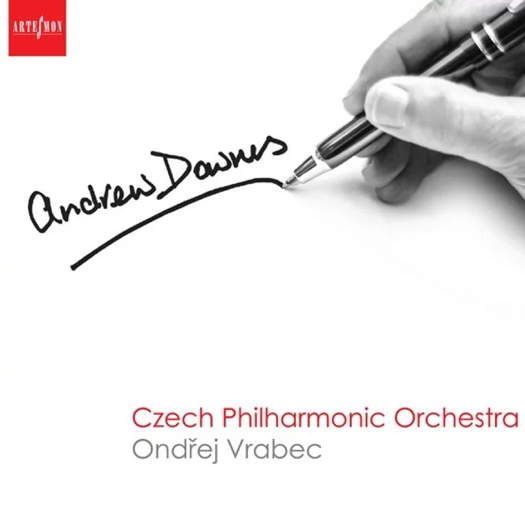- Madama Butterfly
- Classic Produktion Osnabrück
- Terezin
- Wilma Lipp
- Eileen Farrell
- Lily Josefsberg
- Justin Connolly: Triad V
- Southam Hall
A Rare Bird
Verdi's 'Luisa Miller', heard by GIUSEPPE PENNISI
On 8 February 2022, I was at the first performance of Verdi's Luisa Miller at Teatro dell'Opera di Roma this season. The opera is a rare bird because it is a little-performed work of Verdi's repertoire. This is only the fourth time that it has arrived at Teatro dell'Opera if we exclude a streamed concert performance shown in April 2021 during the pandemic. There are, essentially, two determinants.
Firstly, Salvatore Cammarano's libretto based on Schiller's Kabale und Liebe, is really bad. Kabale und Liebe was a manifesto of early German Romanticism, a seventeenth century blood and guts plot with all the possible intricacies one can imagine; I have still a bad memory of when, in senior high school, I had to read it.
Secondly, the score is uneven: There is a splendid third act but there are several imbalances in the first two. It is a transitional work by Verdi who had set his early operas on his back and was heading towards the 'popular trilogy' of Rigoletto, Il Trovatore and La Traviata.
This production originates in a 2018 Zurich Opernhaus staging. The stage director, sets and costumes are the same but the conductor and the singers new; several were members of the cast for the Teatro dell'Opera 2021 concert performance. The stage director is Damiano Michieletto, the sets are by Paolo Fantin, the costumes by Carla Teti and lighting by Alessandro Carletti.
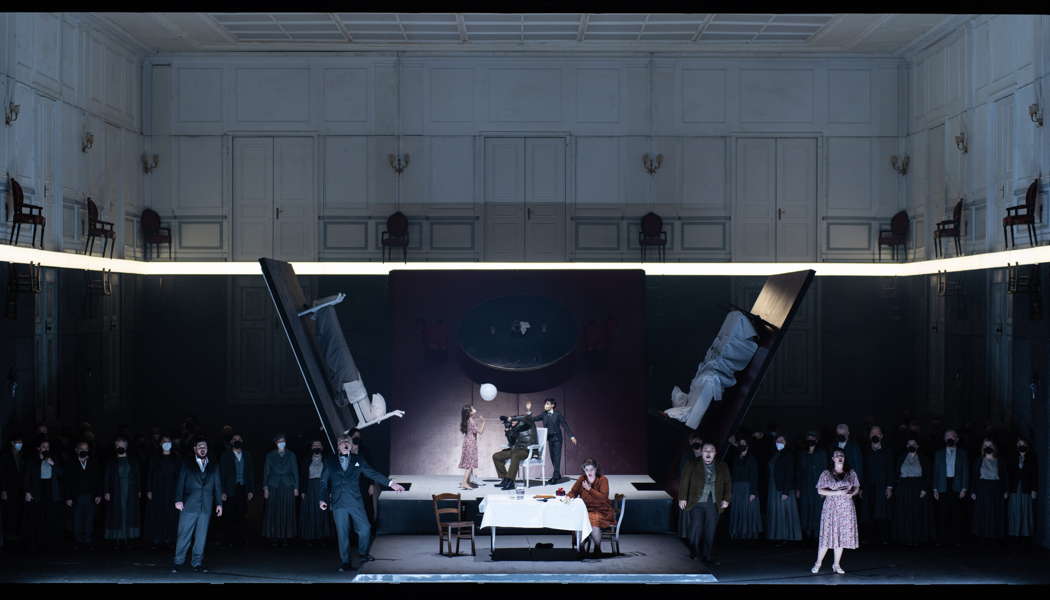
A scene from Verdi's Luisa Miller in Rome. Photo © 2022 Fabrizio Sansoni
Michelietto and his usual colleagues place the plot in the present day (and thus eliminate the Tyrolean digressions). They underline the relationships between fathers and their children - in this case, from different social backgrounds. This is one of the founding themes of Verdi's poetics. The direction, providing very accurate acting and chorus movements, works, even if, as in Michieletto's declared intentions, it does not make the grim and bloody Kabale und Liebe into 'a bourgeois drama'.
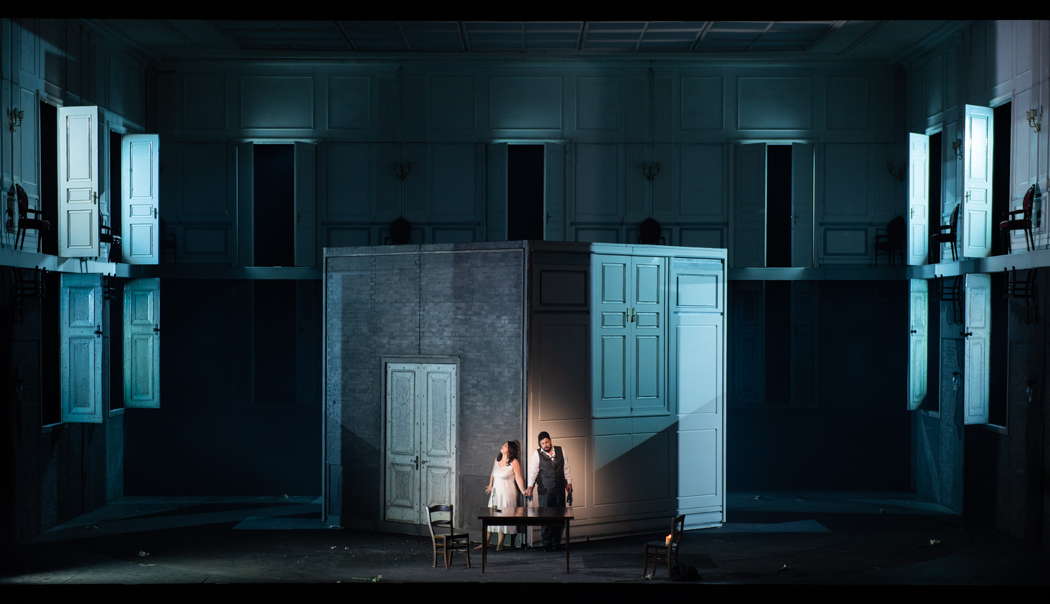
Roberta Mantegna as Luisa and Antonio Poli as Rodolfo in Opera di Roma's Luisa Miller. Photo © 2022 Fabrizio Sansoni
The musical direction is entrusted to Michele Mariotti, new musical director of Teatro dell'Opera di Roma. In this capacity, he has proposed a rediscovery of the Luisa Miller score in which he underlines the belcanto style of Verdi's early works while showing the varieties of timbre, almost always linked to the mood of the protagonists, and the psychological deepening of the characters. The reading may seem slow compared to other tighter ones, but in those renderings there are occasionally moments with excessive band-like rhythms. Mariotti's slower tempos are needed to dig into the colours of the score. Mariotti stands as the greatest Verdi conductor of what will be the 'post-Muti' era.

Michele Mariotti
Mariotti is in the company of an excellent vocal cast, largely already with him in the April 2021 concert performance. In the role of the protagonist, Roberta Mantegna, almost always on stage, shows off her qualities as a dramatic coloratura soprano in the numerous duets and trios and especially in the Act II aria 'Tu puniscimi, o Signore!'. She has a warm voice and a large volume which fills the entire theatre with her demonstrations of agility.
It was nice to see Daniela Barcellona again at Teatro dell'Opera, after so many years; she was in the guise of Duchess Federica, a role which fits her perfectly.
There was an excellent performance by Antonio Poli as Rodolfo (who is also almost always on stage): the audience dedicated not only applause but ovations to him after 'Tutte le sere al placido'.
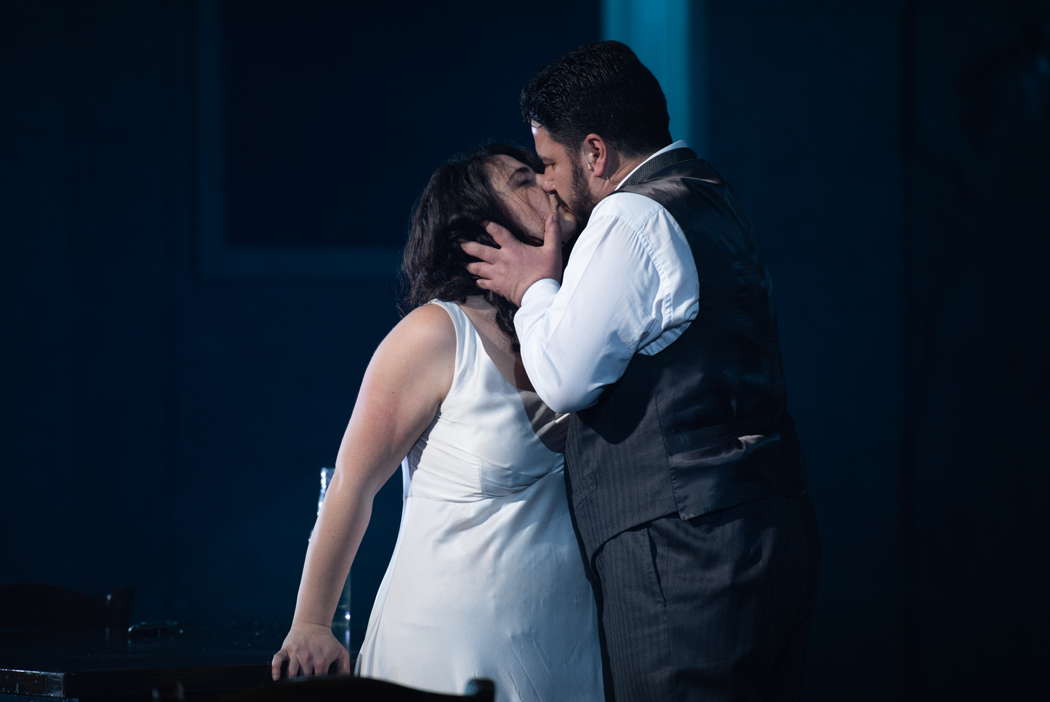
Roberta Mantegna as Luisa and Antonio Poli as Rodolfo in Opera di Roma's Luisa Miller. Photo © 2022 Fabrizio Sansoni
Michele Pertusi is a veteran of the Count Walter role; as compared to other productions, in this one it gives the character a tormented and painful touch.
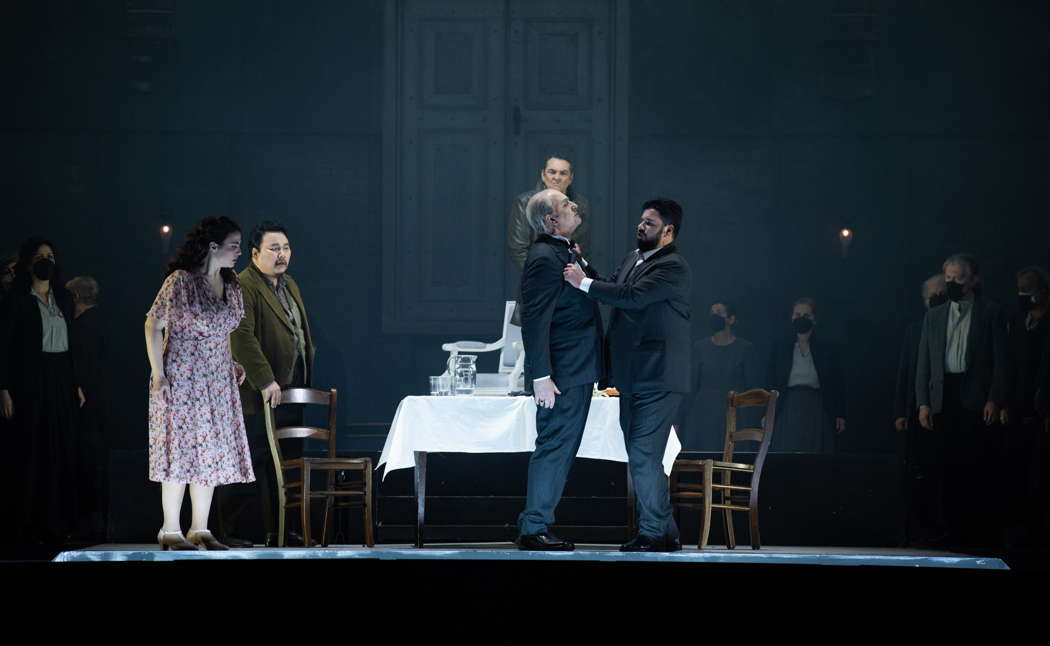
Roberta Mantegna as Luisa, Amartuvshin Enkhbat as retired soldier Miller, Luisa's father, Michele Pertusi as Count Walter, Antonio Poli as Rodolfo and Marco Spotti as Wurm, Walter's steward, in Opera di Roma's Luisa Miller. Photo © 2022 Fabrizio Sansoni
Marco Spotti is a terrific Wurm, more lascivious than that conceived by Schiller, Cammarano and Verdi, and perhaps more than needed.
A discovery (at least for Rome) is Amartuvshin Enkhbat in the role of Miller's father: a young baritone born in Mongolia, where he did most of his studies, with a beautiful voice full of nuances.
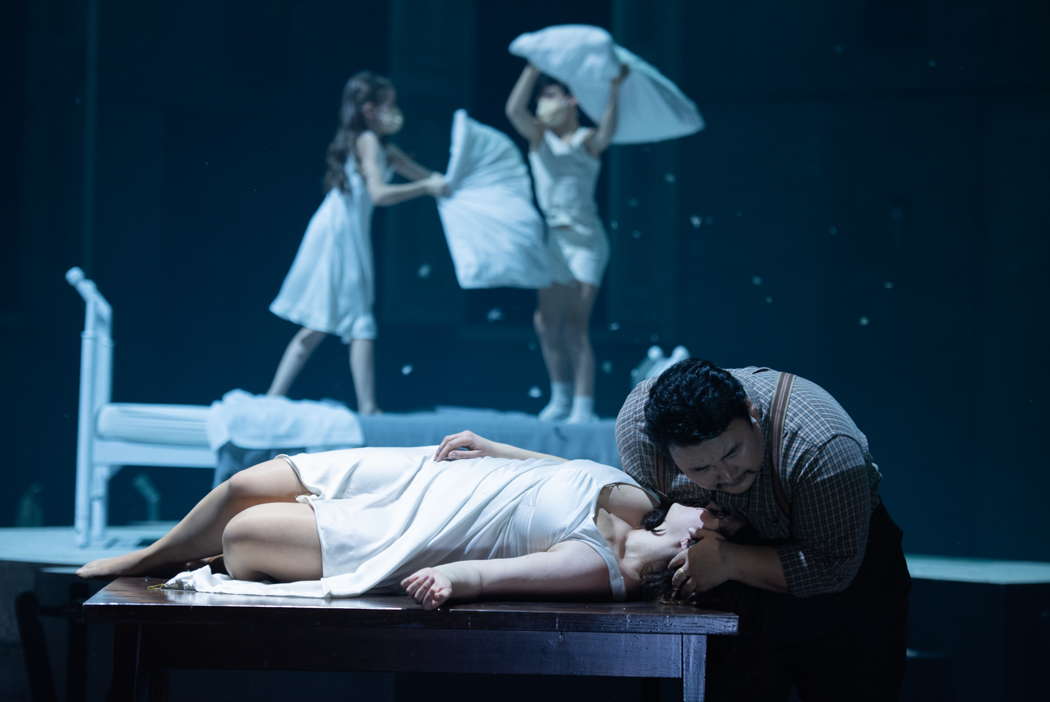
Roberta Mantegna as Luisa and Amartuvshin Enkhbat as her father in Opera di Roma's Luisa Miller. Photo © 2022 Fabrizio Sansoni
Two young people from the Teatro dell'Opera Fabbrica training scheme project, Irene Savignano and Rodrigo Ortiz, took two minor roles.
On 8 February, there was almost ten minutes of applause.
Copyright © 10 February 2022
Giuseppe Pennisi,
Rome, Italy

ARTICLES ABOUT TEATRO DELL'OPERA DI ROMA



